Sociological Perspectives of Religion: Presentation and Analysis
VerifiedAdded on 2022/08/12
|10
|540
|18
Presentation
AI Summary
This presentation delves into the sociological perspectives of religion, examining its significance in shaping individuals and societies. It explores how religion provides a sense of purpose and a way of life, as well as its relationship with culture and socialization. The presentation discusses key sociological perspectives such as structural functionalism and symbolic interaction, highlighting how these perspectives explain the role of religion in society. It also explains how religious doctrines influence people's way of life and how the transmission of religious beliefs and values occurs through socialization. The presentation concludes by emphasizing the vital role of religion in the lives of individuals and its impact on societal norms and values.
1 out of 10
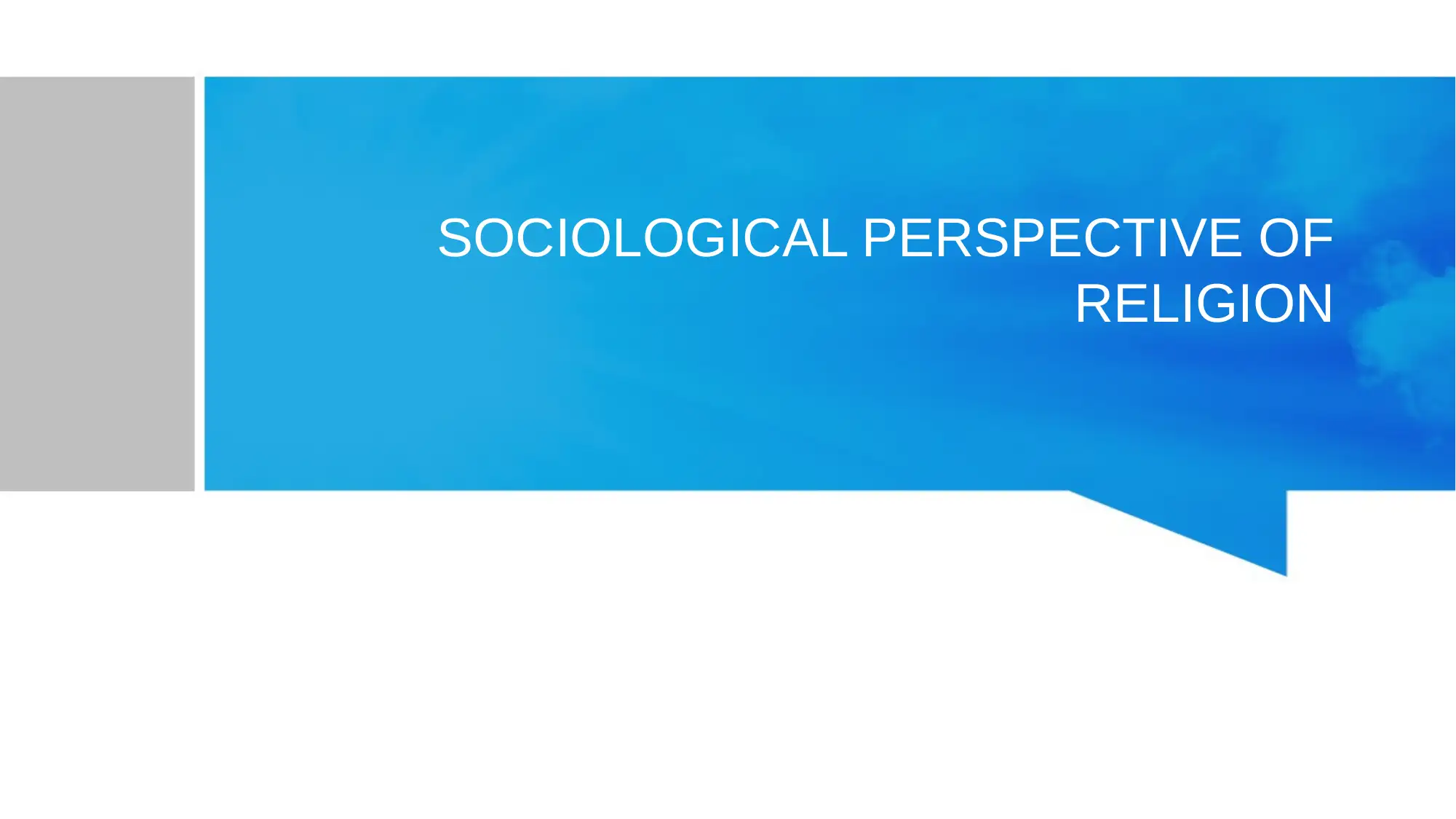
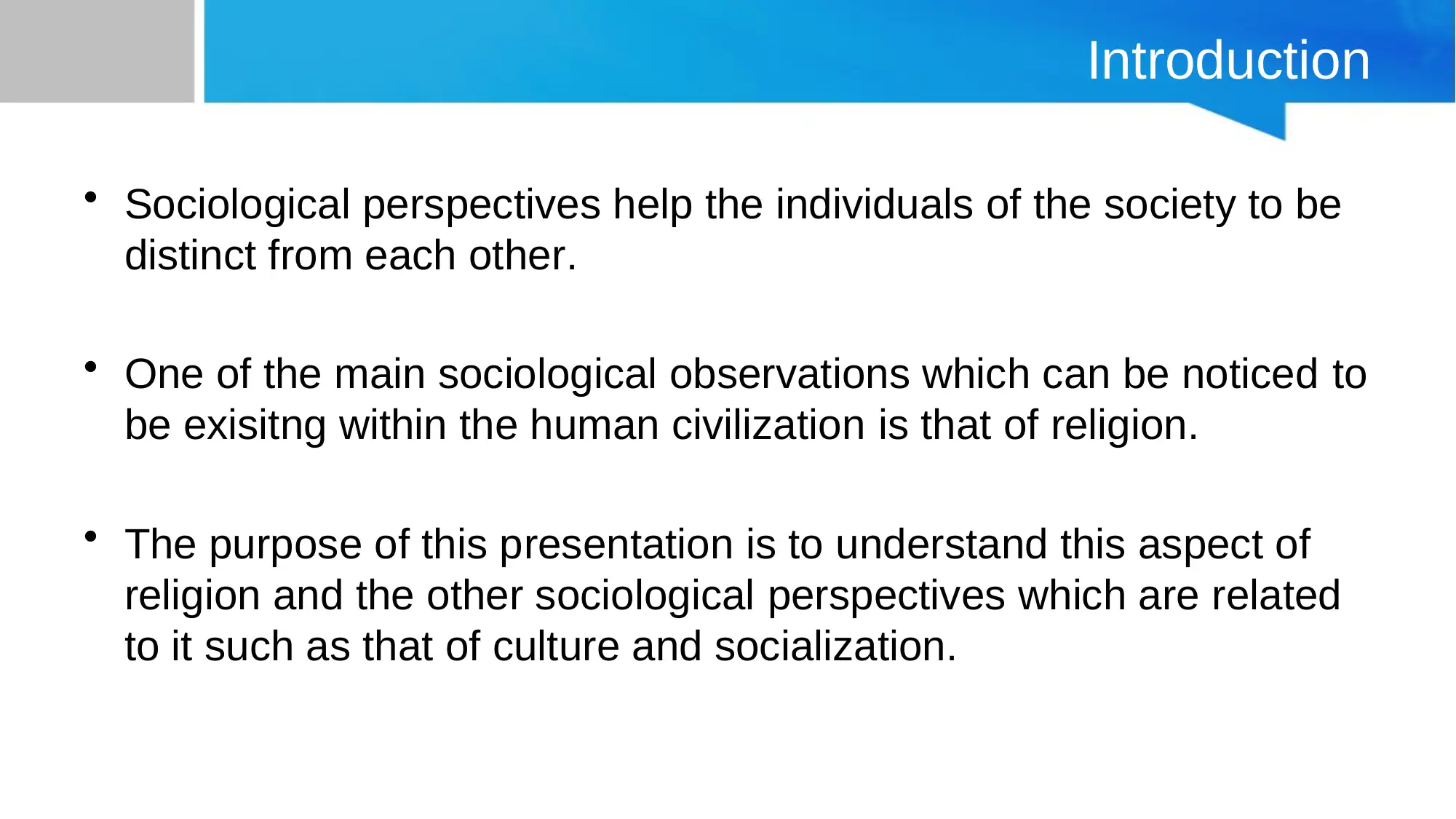
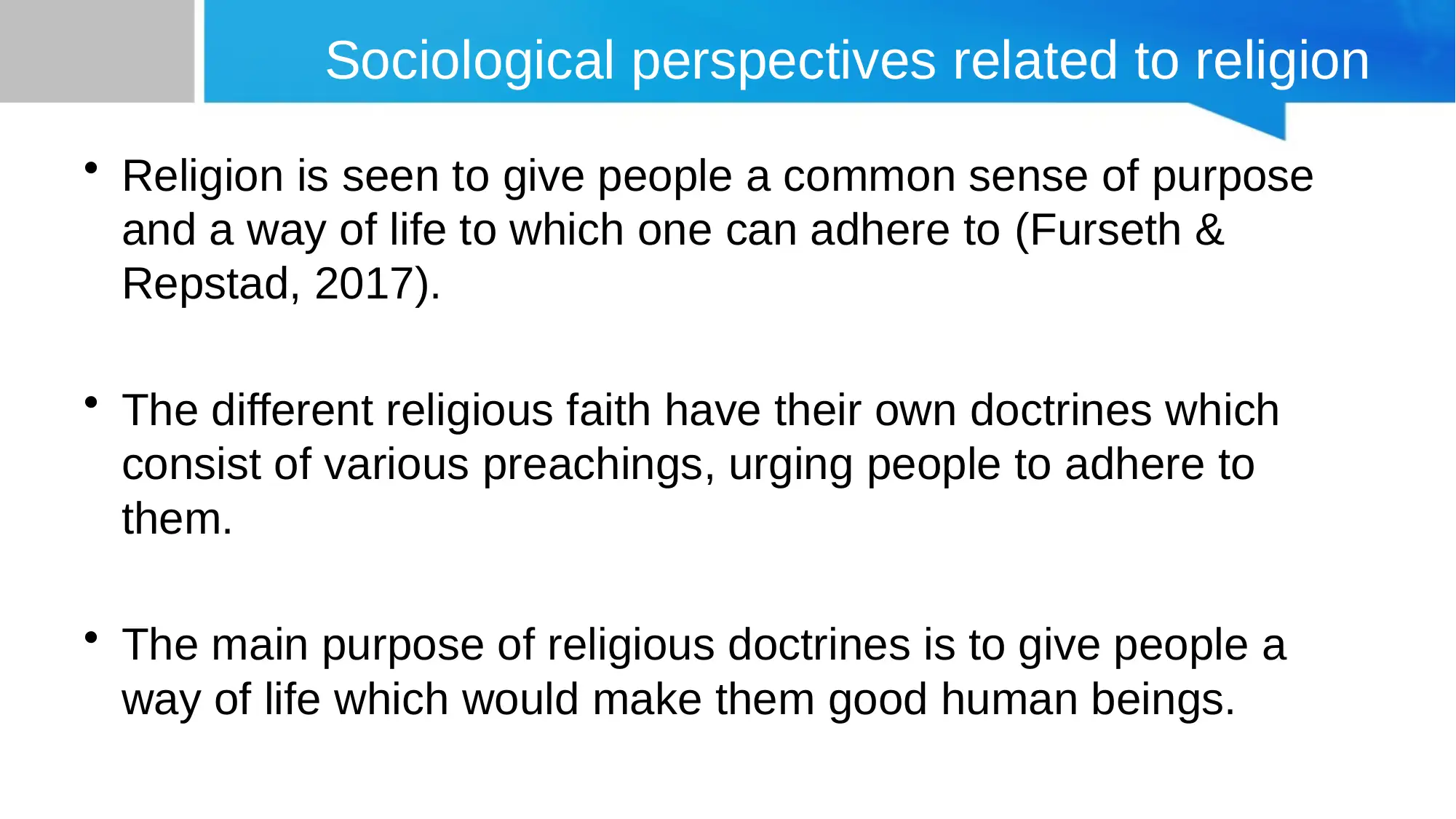

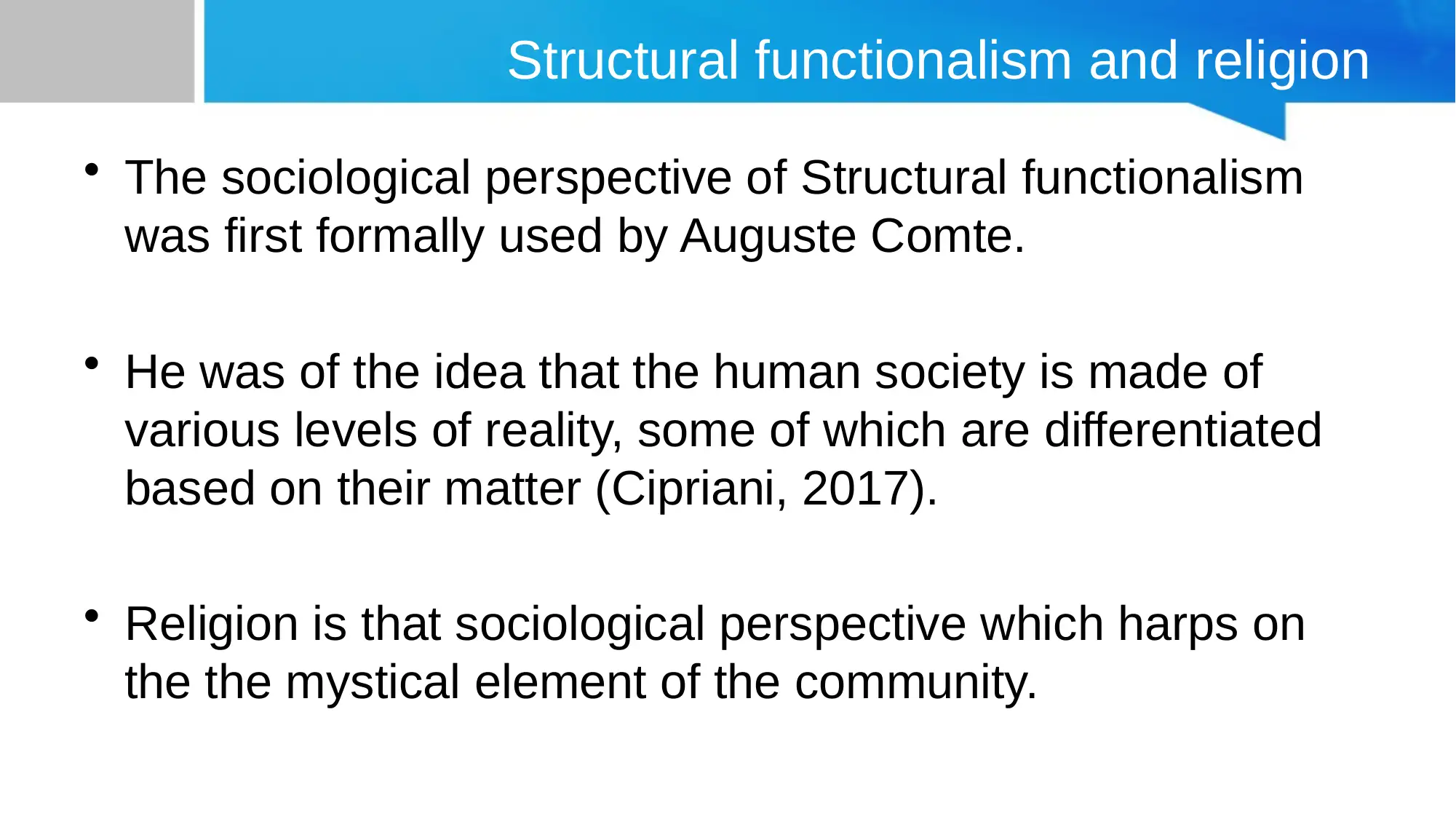
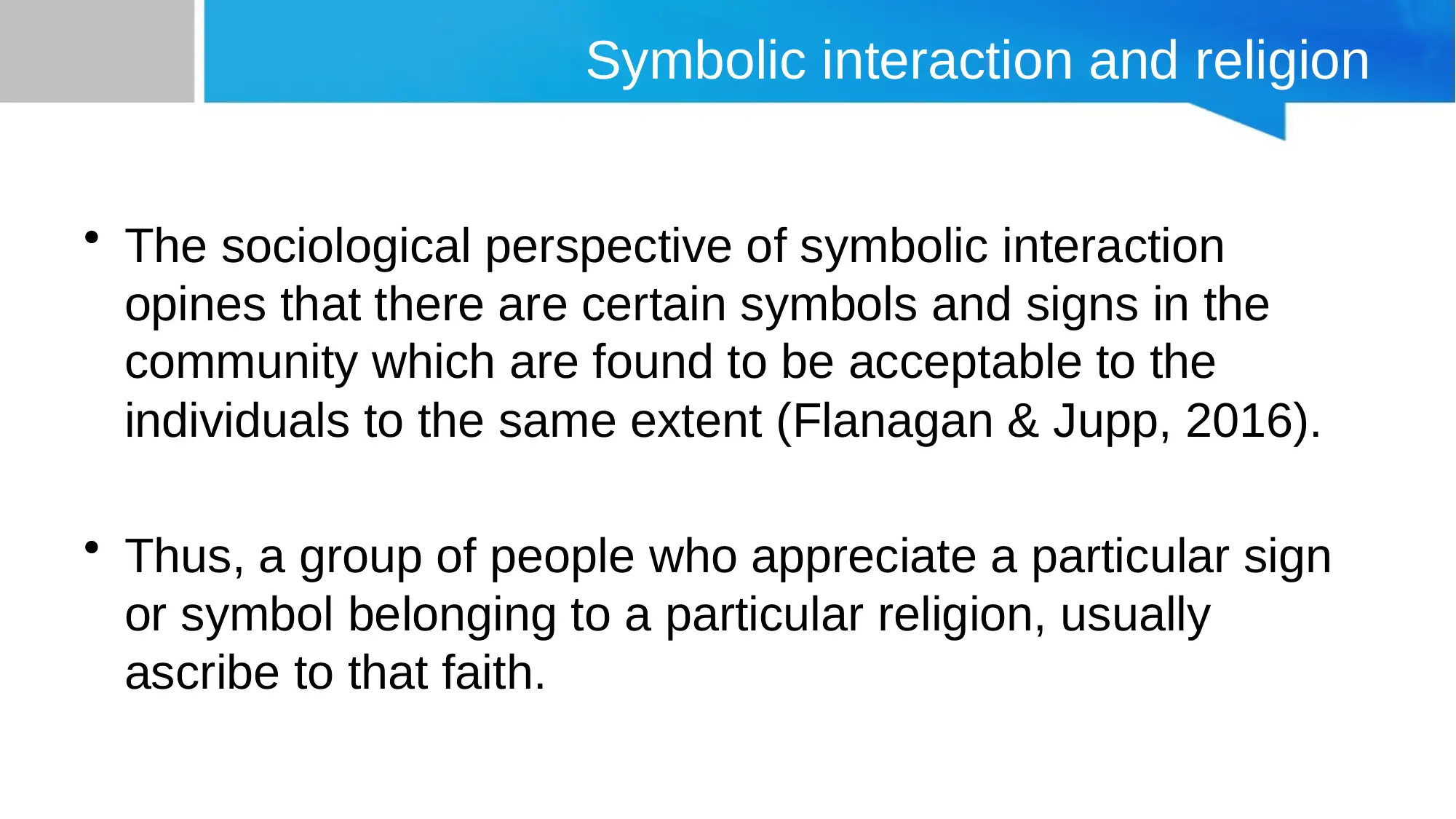
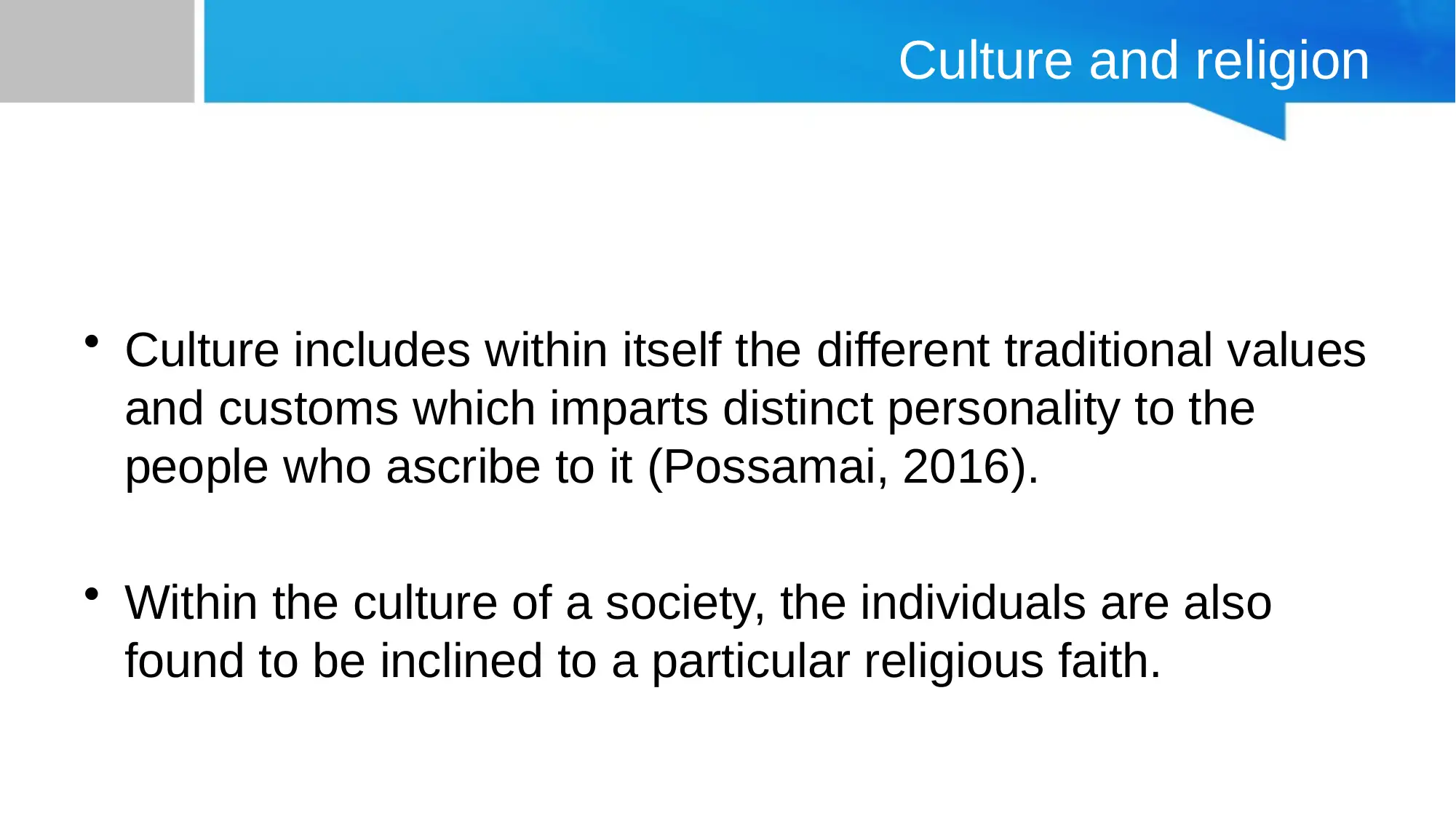
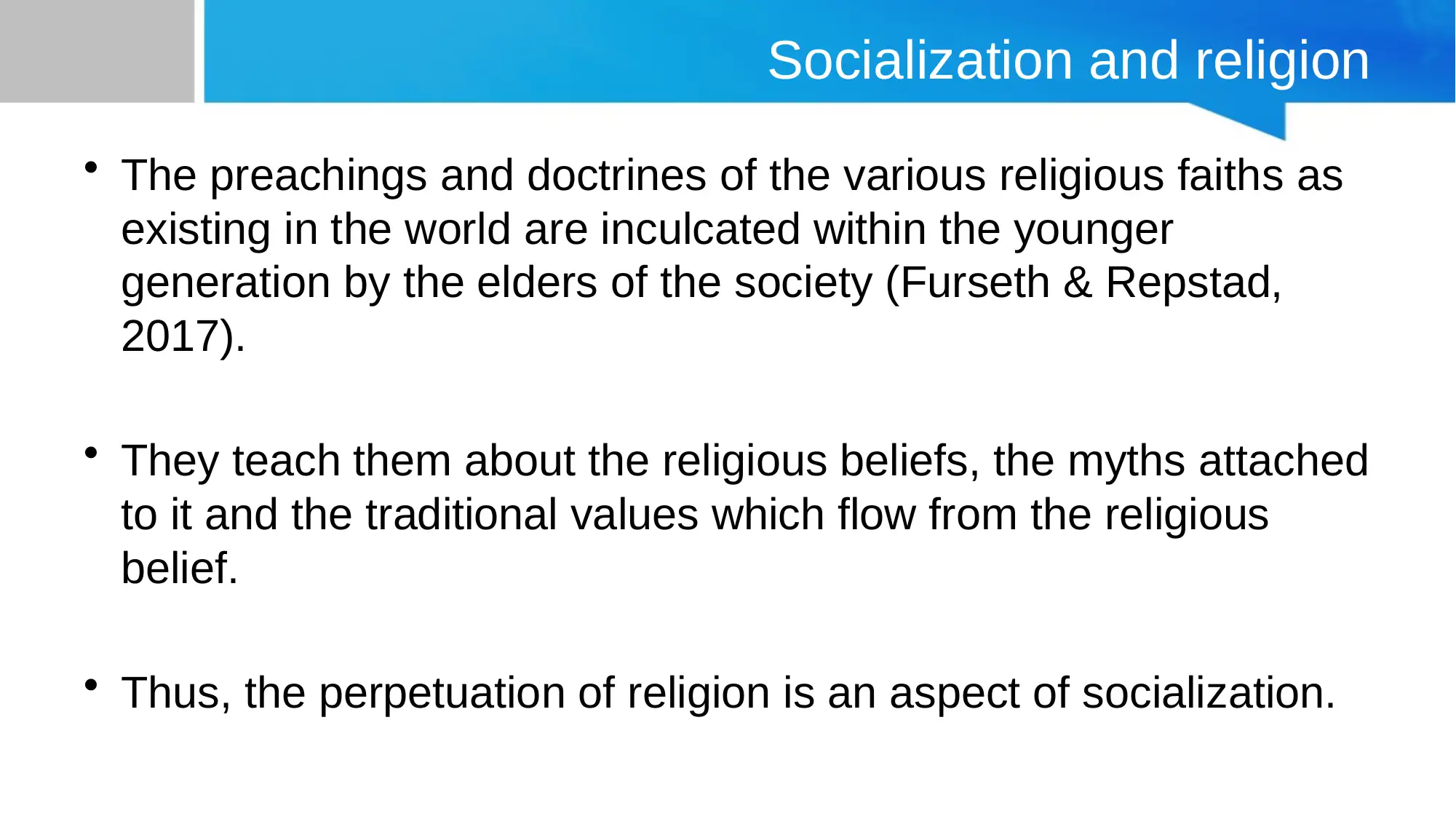
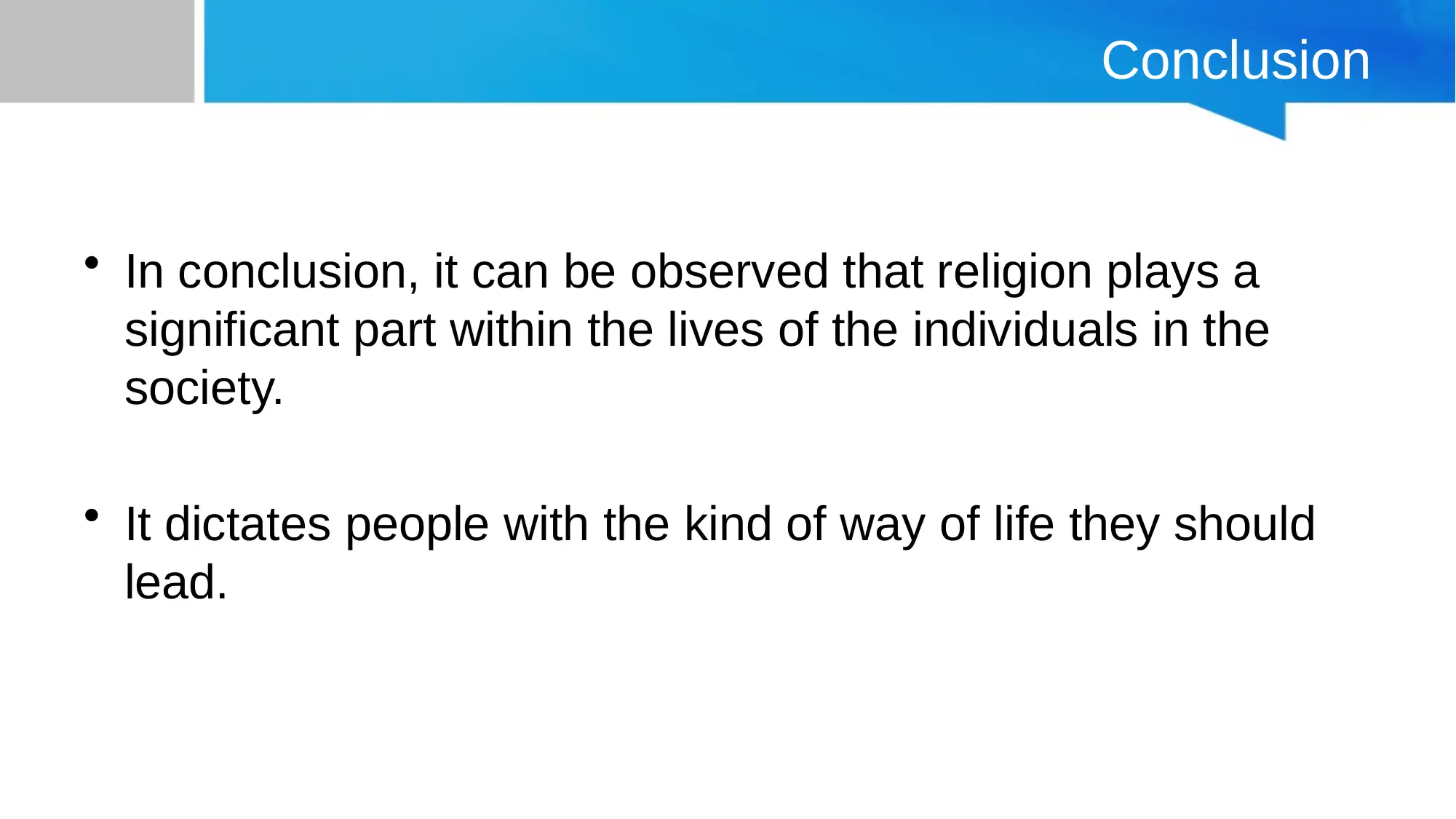
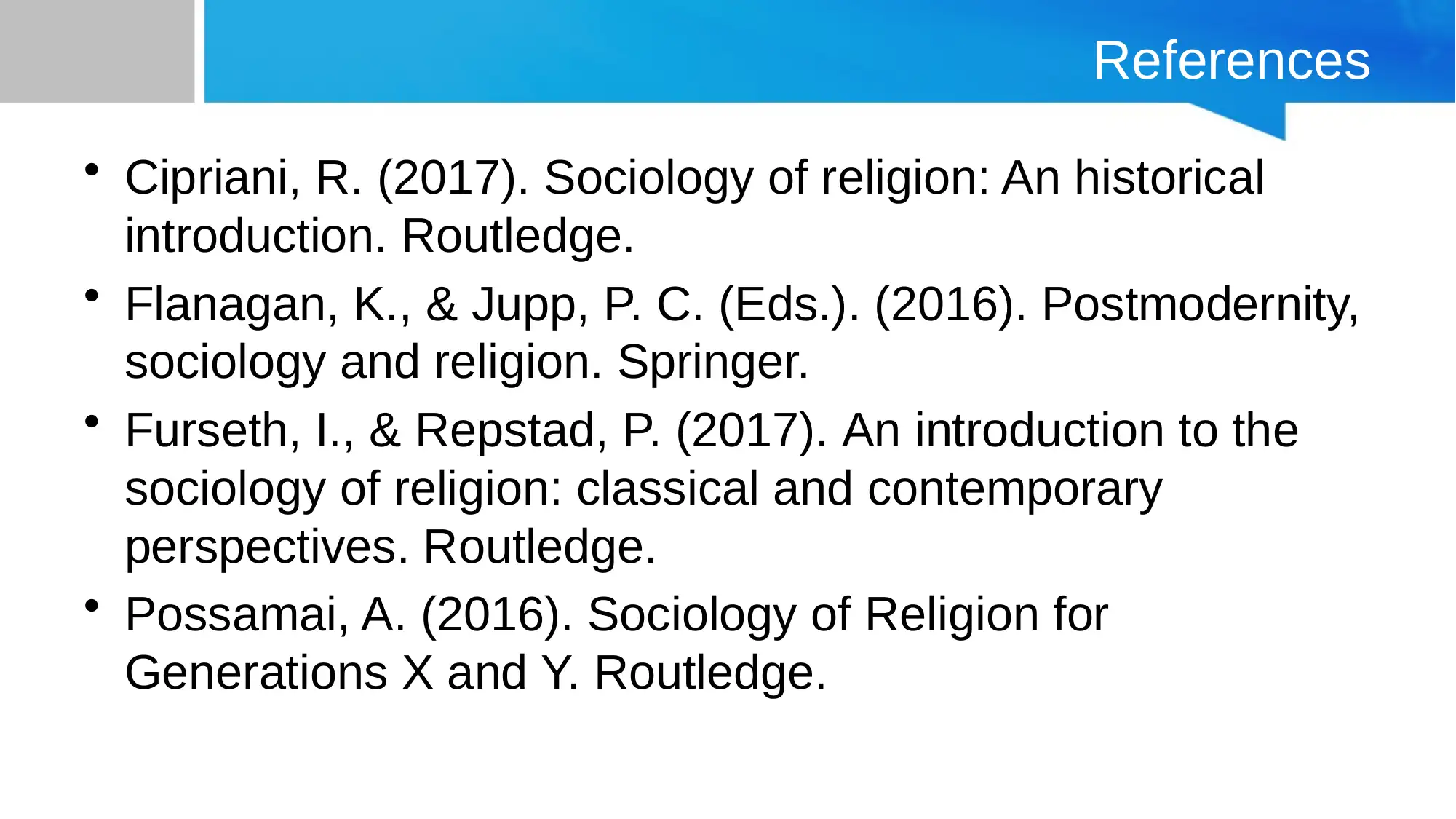




![[object Object]](/_next/static/media/star-bottom.7253800d.svg)